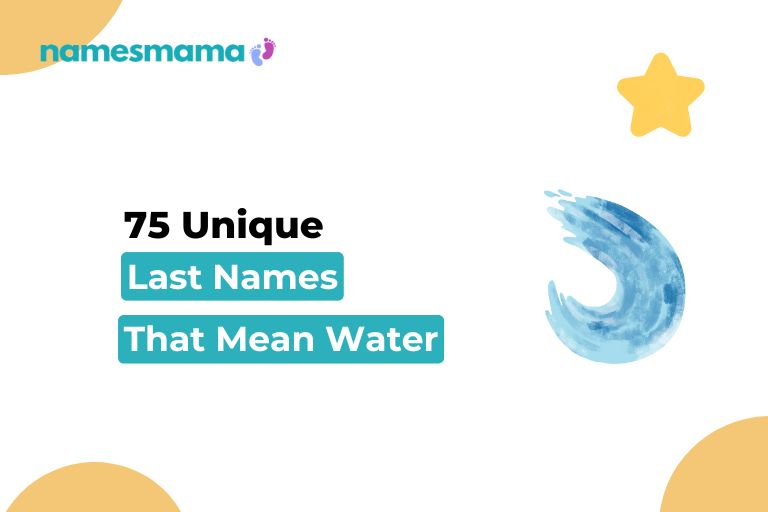80 Melungeon Surnames Collection
Melungeon last names hold the story of a puzzling group from Appalachia with mixed European, African, and Native American roots.
These family names, handed down over time, give us a rare peek into the identity and resilience of a community once misunderstood and pushed aside.
People often link these names to early settlers in Tennessee, Virginia, and Kentucky. Melungeon surnames show varied origins — English, Irish, Portuguese, and more.
If you’re looking into your family history or studying the American past, these last names uncover hidden ties to a layered history.
This article digs into well-known Melungeon surnames and what they mean.
Let’s get started.
Melungeon Surnames
Collins (Irish/Scottish) – From the Gaelic Ó Coileáin, meaning “descendant of the young warrior” or “cub/whelp.”
Gibson (English/Scottish) – Means “son of Gib,” where Gib is a short form of Gilbert, meaning “bright pledge.”
Goins (Welsh/French/Portuguese origin debated) – Possibly from Gwyn (Welsh) meaning “white” or Gómez (Spanish/Portuguese) meaning “man.”
Mullins (Irish) – Derived from Ó Maoláin, meaning “descendant of the bald or tonsured one.”
Bunch (English) – Origin is uncertain, possibly from a nickname for someone with a lump or rounded figure or from Bonchier (French).
Minor (English/French) – Latin root minor, meaning “younger” or “junior.”
Moore (English/Irish) – From mór, meaning “great,” or from Old French more, meaning “dark-skinned” or “moor.”
Bowlin (Irish/English) – Possibly from Boland, meaning “descendant of a famous ruler,” or Bolen, meaning “rounded hill.”
Sizemore (English) – Possibly from Sigismund, meaning “victorious protection.”
Bolling (English/French) – From Bollen, meaning “to bubble or boil” (could be a nickname for a lively person).
Chavis (Spanish/French) – Variant of Chávez, possibly from chaves, meaning “keys.”
Lovins (English) – Likely derived from Love, meaning “beloved,” or from Lovell, meaning “little wolf.”
Hall (English) – From the Old English heall, meaning “manor” or “large residence.”
Freeman (English) – Means “free man”, not a serf or slave; used to denote liberty or status.
Branham (English) – Possibly from Braham/Barnham, meaning “homestead by a hill or barn.”
Delph (English) – From delve, meaning “a digger or quarry worker,” or from Delph in Yorkshire.
Cooper (English) – Occupational name meaning “barrel maker.”
Green (English) – Often referred to someone who lived near the village green or someone who was youthful/fresh.
Fields (English) – Topographic surname meaning “open land” or “farmland.”
Lucas (Latin) – Derived from Lucius, meaning “light” or “illumination.”
Nichols (Greek via English) – From Nicholas, meaning “victory of the people.”
Perry (English/French) – From perrie, meaning “pear tree,” possibly referring to someone living near one.
Martin (Latin) – From Martinus, meaning “of Mars,” the Roman god of war.
Baker (English) – Occupational surname meaning “bread maker.”
Hicks (English) – Patronymic from Richard, meaning “brave ruler.”
Anderson (Scottish/Scandinavian) – Means “son of Andrew,” from Andreas, meaning “manly” or “brave.”
Turner (English/French) – Occupational name for a lathe worker or wood turner.
Tolliver (English/French, from Taliaferro) – From Italian Tagliaferro, meaning “iron-cutter” or “strong in battle.”
York (English) – Locational name meaning “from the city of York,” derived from Latin Eboracum.
Napier (Scottish/French) – Occupational name meaning “one in charge of linens or tablecloths” (from Old French nappe).
Christian (Latin/English) – From Christianus, meaning “follower of Christ.”
Hale (English) – Derived from Old English halh, meaning “nook, recess,” often referring to someone living in a hollow or secluded spot.
Roberts (English/Welsh) – Patronymic from Robert, meaning “bright fame.”
Slone (Irish) – From Ó Sluaghhadáin, meaning “descendant of the little raider or warrior.”
Hensley (English) – Possibly from a place name meaning “stallion meadow” (hengest = stallion, leah = clearing/meadow).
Turner (English/French) – Occupational surname for a woodworker using a lathe.
Vasquez (Spanish) – Patronymic from Velasco, meaning “crow,” often a symbol of wisdom or battle.
Menely (Irish/Scottish, rare) – Possibly a variant of Manley or Manly, meaning “heroic” or “manly.”
Wallace (Scottish) – From Old French waleis, meaning “Welshman” or “foreigner.”
Fields (English) – Topographical surname for someone who lived or worked near open farmland.
York (English) – Locational name for someone from the city of York, which comes from Latin Eboracum, meaning “yew-tree place.”
Napier (Scottish/French) – Occupational name from Old French nappe, meaning “cloth bearer”, often a linen keeper or table servant.
Ely (English/Hebrew) – Locational name (from Ely, England) or derived from Eli, meaning “ascended” or “my God” in Hebrew.
Briggs (English) – From brigge, meaning “dweller by a bridge.”
Evans (Welsh) – From Ifan (Welsh for John), meaning “God is gracious.”
Perkins (English) – Diminutive of Peter, meaning “rock.” Perkins means “little Peter” or “son of Peter.”
Delph (English) – Possibly a toponymic name meaning “digging” or “quarry.”
Lovins (English) – Likely from Love, meaning “beloved,” possibly a nickname for someone affectionate.
Shoemake (English) – Possibly a variant of Shoemaker, an occupational surname for a maker of shoes.
Tolliver (Italian/French) – Variant of Taliaferro, meaning “iron cutter” or “strong in battle.”
Green (English) – Topographic surname for someone who lived near a village green or had fresh/youthful traits.
Lucas (Latin) – Derived from Lucius, meaning “light-bringer” or “illumination.”
Minor (Latin/English) – From Latin minor, meaning “younger” or “junior member.”
Branham (English) – Variant of Braham, meaning “homestead on a slope” or “hill enclosure.”
Martin (Latin) – From Martinus, meaning “of Mars,” the Roman god of war.
Harmon (German/English) – From Hermann, meaning “army man” or “warrior.”
York (English) – From the city of York; anciently Eboracum, meaning “place of the yew trees.”
Cooper (English) – Occupational name for a barrel maker.
Bolling (English) – May come from a nickname for someone with a rounded or bubbling personality or from boll, a boil or swelling.
Anderson (Scottish/Scandinavian) – Means “son of Andrew,” with Andrew meaning “manly, brave.”
Brooks (English) – From Old English bróc, meaning “small stream” or “brook dweller.”
Carpenter (English/French) – Occupational surname for a woodworker or builder, from Latin carpentarius.
Gilliam (English/French) – Variant of William, meaning “resolute protector.”
French (English/French) – Ethnic name for someone from France or who spoke French.
Porter (English/French) – Occupational name for a gatekeeper or carrier, from Latin portarius.
Carter (English) – Occupational surname for someone who transported goods by cart.
Rice (Welsh/English) – From Rhys, meaning “fiery” or “enthusiastic.”
Line (English/German) – Possibly from Lina, a diminutive of names ending in -line; may also relate to Lein, meaning “flax.”
Osborne (English/Norse) – From Old Norse Ásbjǫrn, meaning “God bear” (divine + bear).
Bass (English/French) – Possibly a nickname from base (low, short) or occupational for a fisherman (from the fish bass).
Griffin (Welsh) – From Gruffudd, meaning “strong lord” or “fierce chief.”
Stacy (Greek/English) – From Eustace, meaning “steadfast” or “fruitful.”
Dillon (Irish/French) – From Díolún or de Léon, meaning “faithful” or “from Lyon.”
Alley (English) – From Old French alee, meaning “path”; possibly a locational name.
Blevins (Welsh) – Derived from Blevin, meaning “little wolf” or “child of the wolf.”
Shepherd (English) – Occupational surname meaning “one who tends sheep.”
Tate (English/Norse) – From Old Norse teitr, meaning “cheerful” or “glad.”
Posey (French/English) – Possibly from Poésy (poetry), or Posé, meaning “well-settled.”
Dorton (English) – Locational name, possibly from a place meaning “settlement by the door or gate.”
Hammons (English) – Patronymic form of Hamon, from Germanic haim, meaning “home” or “house protector.”
Note: While these surnames are associated with Melungeon, many of them are also found in other genealogies like Appalachian and American. And it is difficult to determine Melungeon identity only on the basis of surnames.
Closing Remarks
Melungeon last names are associated with a group of people of mixed ancestry, for example, European, African, and Native American.
I hope you learned something new from this article and keep supporting us.



